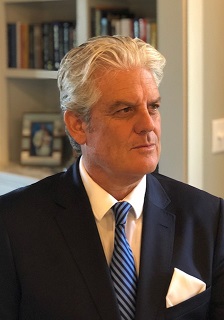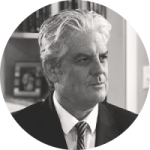From the CEO – December 2019

Dear Clients,
At the close of the year and indeed the decade those of us in the risk and forecasting world are often asked for out ‘top picks’ for the coming year – those ‘surprises’ that nary a soul will see on the horizon and which will set the geopolitical risk world on its head (I realize I’m overstating this point), so that claims to superior insights will be indisputable.
We could do this and offer up our own list. And to some extent, our bullish and bearish calls in the ICRG Investir newsletter provide client guidance and recommendations based on our risk metrics.
To this extent, we have to entertain the prospects for US-China trade relations, and the outcome of Brexit even though those waters are infused with a little more predictability than was the case a year ago. But given the breadth of our data and the numerous forecasting points contained in each country’s risk profile, we are able to offer hundreds of forecasts and risk assessments each month.
Confining the enterprise to an annual list might be media savvy but our clients are more active, balancing portfolios and trading positions, or undertaking well-funded research to further explore the many unfolding dimensions of political and country risk.
As is the case monthly, I look for connections between what PRS/ICRG does and what has gone before, either in literature or in ‘events’ from the past. It’s a way of conceptualizing PRS ‘ work in a larger, historical context and, in so doing, underscores something that we all do when looking to the future and planning accordingly.
At the risk of sounding too affected, I must mention that Socrates was one of the first to second-guess commonly held beliefs, discerning those that are logical from those that were lacking a rational foundation, notwithstanding how comfortable they might be or whose interests they might serve. Thomas Aquinas’ Summa Theologica pushed Socrates’ tenants further, joining reason to thought, which was later expanded to almost every dimension of human endeavor, from art to law, to notions of freedom, notably during the Renaissance of the 15th and 16th centuries. Finally, Rene Descartes – one of our favorites – developed a way of thinking critically based on the principle of systematic doubt so that almost every aspect of thought should was subjected to scrutiny and tested.
Underlying the discipline that these thinkers demanded is the possibility of an individual seeing more than what is accepted by the collectivity. We tend to focus on the Impressionists here, since not only it is one of our favorites in the art world but the artists that were part of that group were rejected by French Académie and denied a place in the salon. The reasons for the dismissal were myriad, ranging from the apparent lack of technical discipline, to the subject matter, and indeed to the place (outdoors) where some of the work was conceived.
It wasn’t until the French art dealer Paul Durand-Ruel came around that the movement gained an advocate. Durand-Ruel pressed tirelessly to have Impressionist works displayed and accepted, even pushing himself to the verge of bankruptcy several times in doing so. Eventually, Paul succeeded. But he did so not in France but via the Americans, who were much less encumbered by accepted wisdom and the like. As the dealer now famously reflected once his quest for acceptance was over: it was the ‘open-mindedness’ of the American public – which ‘does not laugh [but] buys.’ The French public followed.
The quant-driven approach in which PRS’ makes its risk assessments and forecasts is not far from the historical antecedents mentioned above. Relying on risk bands and qualifying criteria, our approach works to free the mind from bias and the popular opinions that often surrounds the thinking of the ‘crowd.’ It allows us to accept outcomes not entirely fashionable. It removes us from the collection of the ‘talking heads’ or the ‘chat therapists’; and it allows us – via our risk metrics and the Type 2 errors that they all embody – to join together elements of the political risk puzzle, accept the momentum that is often discovered in a risk event, and turn it into actionable advice for our clients.
Turning quickly to some of the highlights from December’s ratings, in the Americas, prices are diving in Ecuador, FX reserves are trending lower, and protests among indigenous peoples continue. In Honduras, efforts to combat corruption suffered a setback but the risk Civil Disorder eased slightly as security forces have been beefed-up.
In Western Europe, the second longest strike in France’s history continues as Macron’s overall approval rating eases. Consumer confidence falls slightly, too. Watch for Macron’s New Year’s address for clues as to a possible way out.
In Africa, the authorities in Cameroon passed a “Special status” law for the Anglophone regions but the opposition continues to demand a truly federal system. Second round voting in Guinea Bissau is too close to call. But with incumbent Vaz effectively removed from the race, overall stability is expected to improve regardless of which candidate assumes the presidency. ECOWAS plays an important stabilizing role this time, militating against coup.
Over in Asia, easing growth concerns and worries over diminishing oil reserves in Brunei have adjusted that country’s risk profile upward (less risk). Consumer confidence in Indonesia popped this month, and the government has introduced measures to reduce Islamic extremism and allow greater input from civil society.
Highlighting Eastern Europe this month is Ukraine, where external debt levels have moved higher as authorities are looking for a 3-year EFF from the IMF to the tune of around $6bn. “Improved” relations with Russia as new gas transit deal comes about and as ceasefire arrangement in agreed upon. Consumer confidence remains relatively high and geopolitical risk has been reduced considerably.
Finally, in the Middle East, protests in Iraq continue as the PM resigns, and the Iranian embassy is torched. Socio-economic inequality has widened, as competitive elections (sans parties) are demanded. Iraq has now fallen back into the “Extreme High Risk” category.
We would like to welcome some new clients this month, including the Ministry of Economy and Sustainable Development (Republic of Georgia), the German Office of Military Sciences Library, UAE University, and National Cheng Kung University (Taiwan). We’d also like to welcome back to the PRS family: Piraeus Bank, DBS Bank, OPIC, China Export and Trade Insurance Company, Baylor University and Columbia University, to name a few. Thank you so much for your (longstanding) support!!
Clients should note that I will be in Miami in mid-January, for client meetings and to attend the regional meetings of the Emerging Markets Traders’ Association. I will also be putting the finishing touches on data partnership agreements with a well-known Geneva/UK-based asset manager, and a UK-based data provider so that PRS’ political and country risk products is served up alongside the world’s most comprehensive offering of global corporate actions and dividend payments, new and pending IPOS, fixed income data, and equity analytics, among other items.
Our data is now the world’s leading quant-driven geopolitical risk data, used by investors with over $20 trillion in assets under management.
Finally, the academics and practitioners continue to use our data in very interesting ways with some very interesting results. For example, investors have long used our ICRG index as a proxy for ‘institutional quality’ in pricing bond spreads in developed and emerging markets, and as guidance in forecasting emerging market currencies.
Similarly, researchers at the IMF recently used our ICRG risk indices to divide ‘safe’ country borrowers from riskier ones in finding that higher funding costs following an exogenous monetary tightening leads to a significant decline in cross-border bank lending.
Have a safe New Year’s Eve, and welcome to a new decade!

Chief Executive

PRS INSIGHTS
Moving beyond current opinions, a seasoned look into the most pressing issues affecting geopolitical risk today.
EXPLORE INSIGHTS SUBSCRIBE TO INSIGHTS
